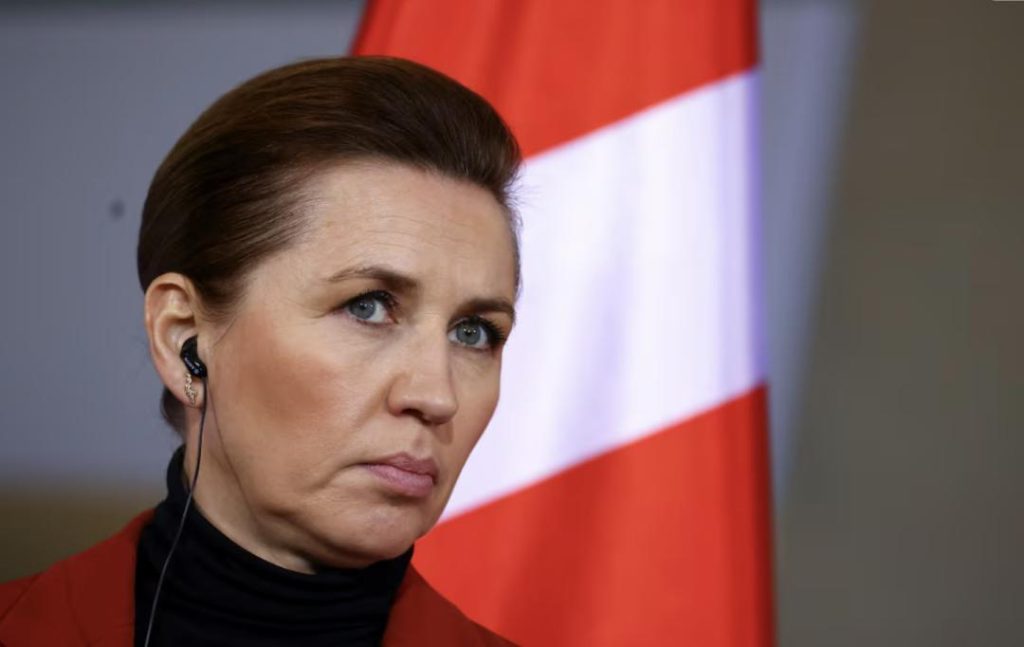
Title: Mass Migration into Europe is a Threat to Daily Life: Denmark PM
The ongoing war in Ukraine has led to a massive influx of refugees into Europe, with many seeking asylum in countries like Denmark. While the humanitarian crisis has sparked a sense of empathy and generosity among the European public, the situation has also raised concerns about the impact of mass migration on daily life. In a recent statement, Danish Prime Minister Mette Frederiksen echoed these concerns, stating that the mass migration into Europe poses a threat to the daily life of its citizens.
Frederiksen’s remarks came as a surprise to many, as Denmark is known for its traditionally open-door policy towards refugees. However, the PM’s statement highlights the growing unease among European leaders regarding the sheer scale of the refugee crisis. The war in Ukraine has led to the displacement of millions of people, with many seeking safety in neighboring countries. The situation has put a significant strain on Europe’s refugee reception infrastructure, and many are worried about the long-term implications for their communities.
Frederiksen’s comments were made during a press conference, where she emphasized the need for a balanced approach to addressing the refugee crisis. While she acknowledged the importance of providing humanitarian aid to those affected by the war, she also stressed the need for a more sustainable solution. “I totally believe in equal opportunities,” she said. “A Scandinavian welfare model…that’s only one traditional pillar of being…social democrat.” Her remarks suggest that while Denmark is committed to providing support to refugees, it is also essential to find ways to integrate them into society and ensure that they contribute to the economy.
The Danish PM’s statement has sparked a heated debate about the merits of mass migration into Europe. On the one hand, many argue that the refugee crisis presents a unique opportunity for Europe to demonstrate its values of compassion and solidarity. On the other hand, others are concerned about the potential impact of large-scale migration on the economy, infrastructure, and social cohesion.
One of the key concerns is the impact on public services, such as healthcare, education, and housing. With a large influx of new residents, there is a risk that these services may become overwhelmed, leading to a decline in the overall quality of life for both refugees and native-born citizens. Additionally, the increased demand for housing and other resources may lead to shortages and higher costs, which could disproportionately affect low-income families.
Another concern is the potential impact on the labor market. While many refugees are highly skilled and eager to contribute to the economy, there is also a risk that they may compete with native-born workers for jobs. This could lead to a decline in employment rates and a rise in unemployment, particularly among low-skilled workers.
The debate about mass migration into Europe is complex and multifaceted, and there are no easy solutions. However, by acknowledging the concerns and challenges associated with large-scale migration, European leaders can work towards finding a more sustainable and equitable solution.
In conclusion, the remarks made by Denmark PM Mette Frederiksen highlight the need for a balanced approach to addressing the refugee crisis. While providing humanitarian aid to those affected by the war is essential, it is also crucial to find ways to integrate refugees into society and ensure that they contribute to the economy. By acknowledging the concerns and challenges associated with mass migration, European leaders can work towards finding a more sustainable and equitable solution that benefits both refugees and native-born citizens.
Source:



